by Shahrzad Nazmi
This week we are delighted to introduce Shahrzad’s article, about our NTU Psychology trip to the Freud Museum. NTU Psychology received funding to stage fun and interesting events for international postgraduate students and as part of these activities, the NTU Psychology International Student Support Team arranged a field trip to the Freud Museum. While modern psychology casts a more critical eye on Freud’s work nowadays, there can be no doubt about his influence and Shahrzad reflects on the experience of learning more about one of psychology’s most influential historical figures.
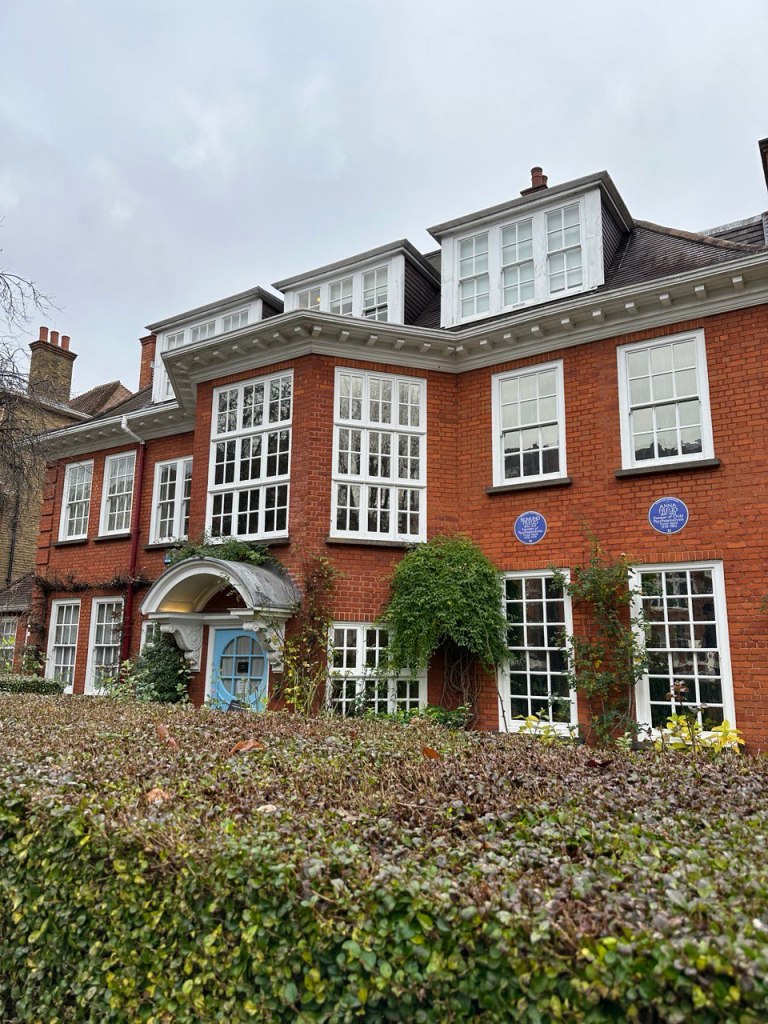
Visiting the Freud Museum in London proved to be an enriching experience, immersing me in the world of Sigmund Freud, the eminent figure known as the ‘Father of Psychoanalysis.’ Born on May 6, 1856, in the Austrian Empire, Freud spent his final years in London, where he passed away on September 23, 1939. I was quite surprised, just some of my friends in social media who saw my initial post regarding Freud’s house in London that he had a connection there because we thought he lived in Vienna, not London! I learned on my visit that Freud was forced into exile as a result of Adolf Hitler annexing Austria to Germany, which imperilled many Jews living in Austria.
The atmosphere of the house was captivating – it left me thoroughly enchanted and although it was totally up to us as to how much time we wished to spend in the museum, I found myself being there almost four hours immersed and engrossed by connecting with every piece of the museum!
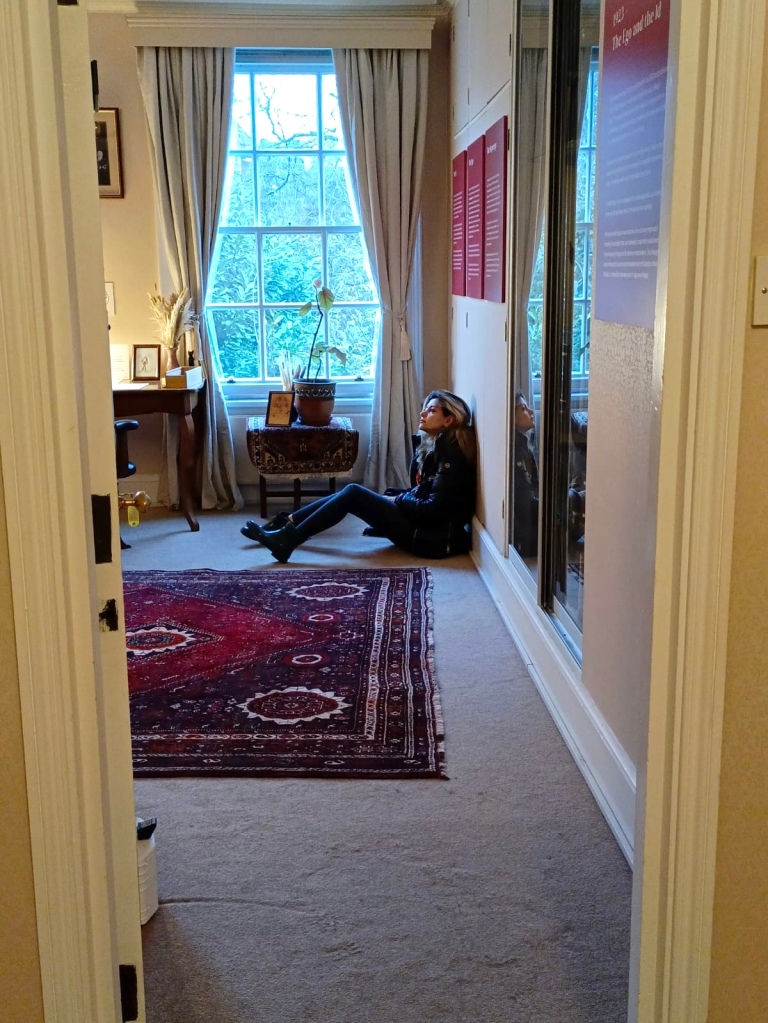
The museum’s serene atmosphere facilitated a reflective journey for me through Freud’s iconic study, his personal artifacts, and the very space where revolutionary theories took shape. What struck me the most was the enduring relevance of Freud’s ideas, underscoring their ongoing impact on our understanding of the human psyche – a testament to the enduring legacy of a brilliant mind. Freud’s approach fostered an environment of ease and expression, which allowed for a profound exploration of the intricate workings of people’s thoughts and feelings and behaviours. While there is controversy surrounding Freud’s general thoughts and theories in counseling, particularly regarding his emphasis on the sexual aspect of the mind, such as with the impulses of the Id, it is evident from his original German writings that the psycho-sexual drives that had been translated as such into English were primarily focused on the notions of “life force” and “emotional energy”, rather than sexual drives. This resonated with me as I walked through different parts of his house. I believe the emotional energy of any house is long-lasting and will never vanish – his house is certainly filled with positive energy.
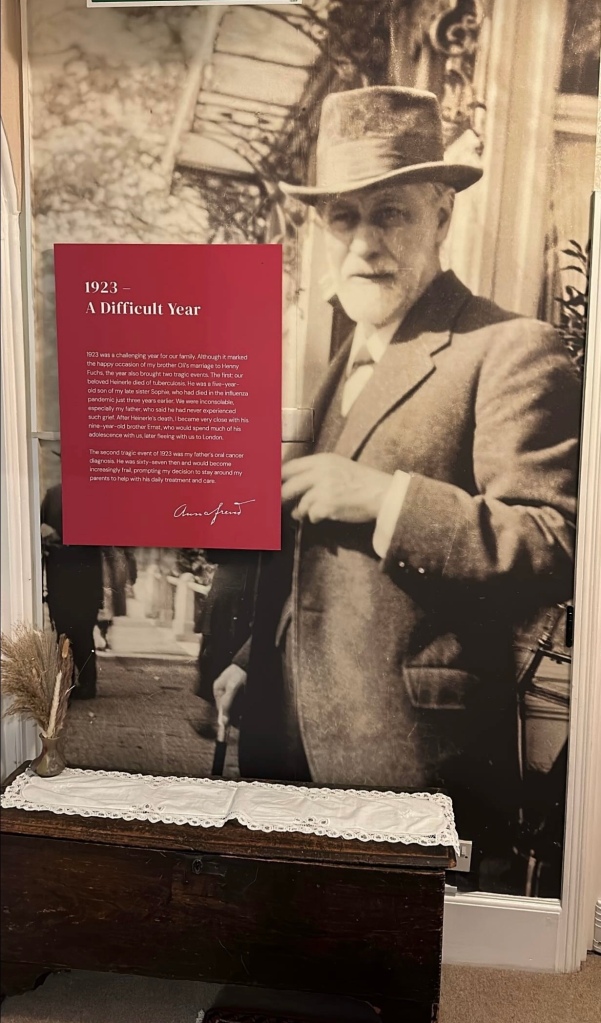
Long ago, I watched a Netflix documentary called “Freud”, which depicted how Freud began introducing his theories and procedures of hypnosis, in which he practised his techniques in his room with his maid. It always very unlikely to me that Freud could have started his journey in hypnoses in such circumstances! Seeing all those books in various areas such as medicine, science, and literature leaning on the bookshelves in the museum, it was a proof to me that Freud’s journey did not start simply as portrayed in the documentary. After watching that, I expected to come across an environment that was intense and clinical, with dark windows and a less inviting environment for his therapy room. In contrast, I found his therapy room very calming, relaxing, and welcoming.
The neatly folded bed, adorned with colorful rugs, served as a poignant reminder of the tranquil setting in which Freud’s patients must have relaxed during their analytical sessions. Imagining the comfort of this space, I reflected on how it might have encouraged patients to open up, delving into unconscious motivations rooted in their childhood experiences. Observing the family photos on the wall, I could understand why Freud emphasized the crucial role of the family in childhood development. It gave me the feeling that he was underscoring the family’s impact on shaping the child’s future personality.
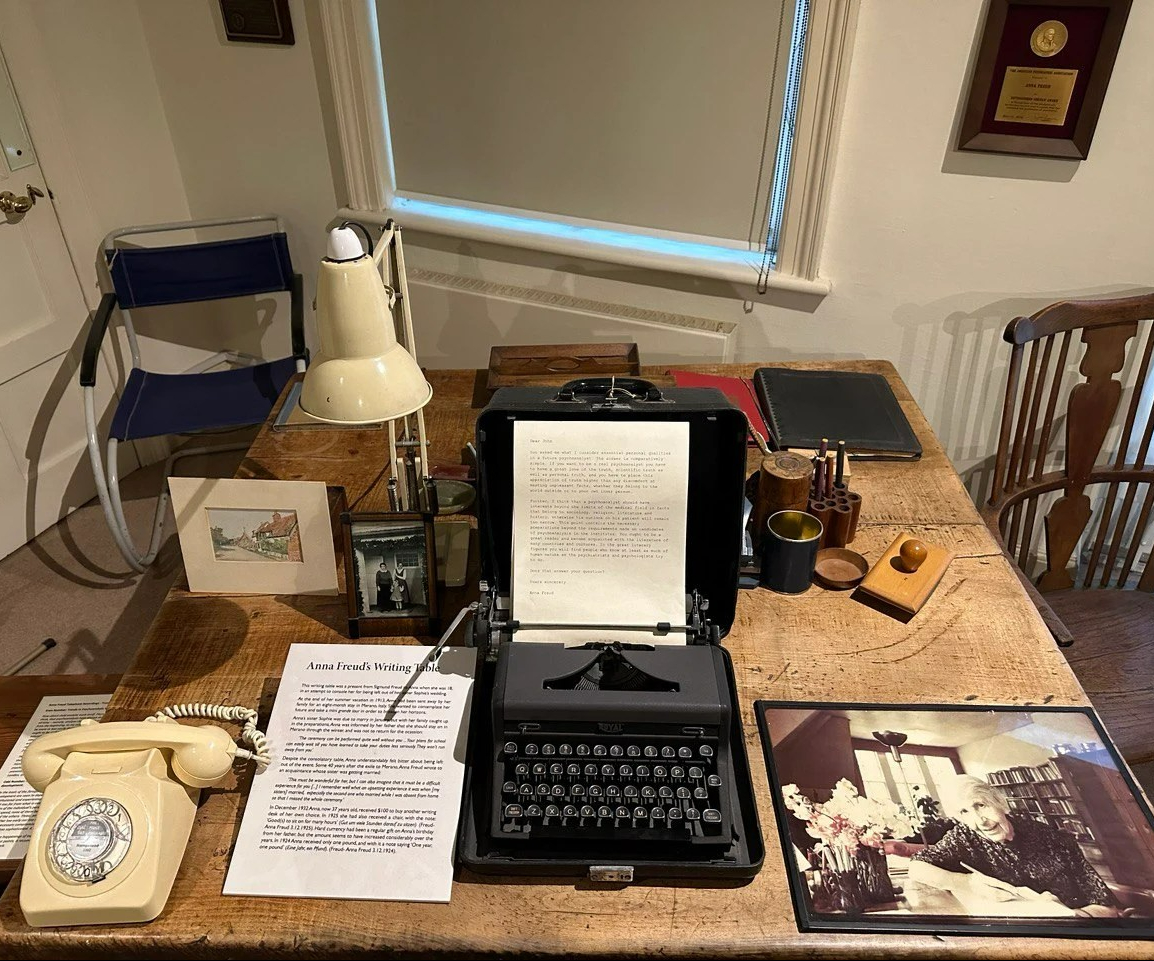
The museum not only showcases Sigmund Freud’s professional and intellectual journey but also serves as a homage to his daughter, Anna Freud. It was her suggestion to convert the house into a museum following her father’s passing, a decision for which I feel deeply grateful. While I had been intrigued by Freud’s theories and had delved into his books and documentaries about his life, stepping into his house, where he conducted therapy sessions, meetings, and discussions with fellow psychologists like Carl Jung, left me utterly speechless. It provided a tangible connection to his work and thoughts that I had previously only imagined.
Despite criticisms and differences of opinion directed at how useful his work has been, Freud’s approach significantly contributed to our comprehension of the human psyche (Cottone, 2023). According to the American sociologist Philip Rieff, the 20th century’s dominant self-image shifted from political, religious, or economic perspectives to what he termed ‘Psychological Man’, largely owing to Freud’s influential vision and the seemingly infinite intellectual legacy he left behind (Jay, 2024).
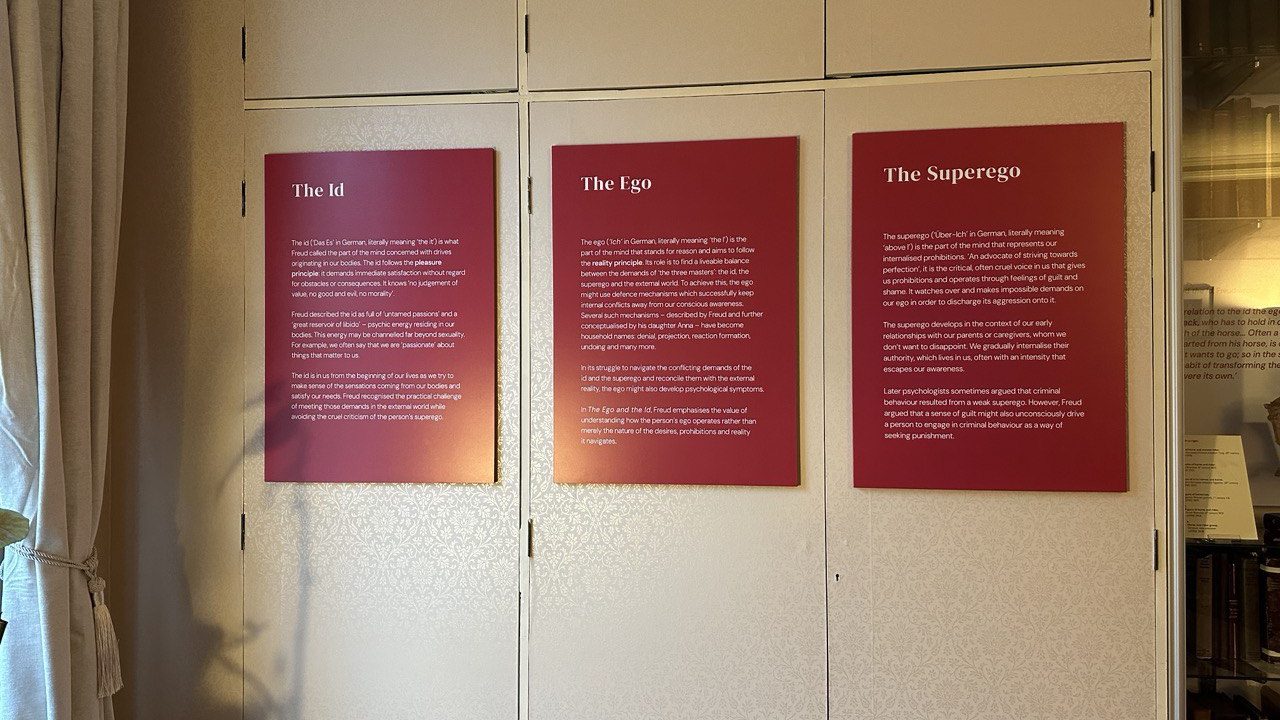
If you ever find yourself in London or are planning a visit, I enthusiastically encourage you to explore the Freud Museum. It offers a captivating journey through the corridors of both History and Psychology; it offers visitors with an opportunity to gain a profound understanding of the man whose theories continue to shape our understanding of the human mind. It’s an experience that promises both enlightenment and fascination, making it a must-see destination for anyone with an interest in the intricacies of psychoanalysis.
I would like to extend my heartfelt gratitude to Dr. Ryan Lumber – Senior Lecturer in Psychology at NTU- for planning and accompanying us on this memorable trip.

